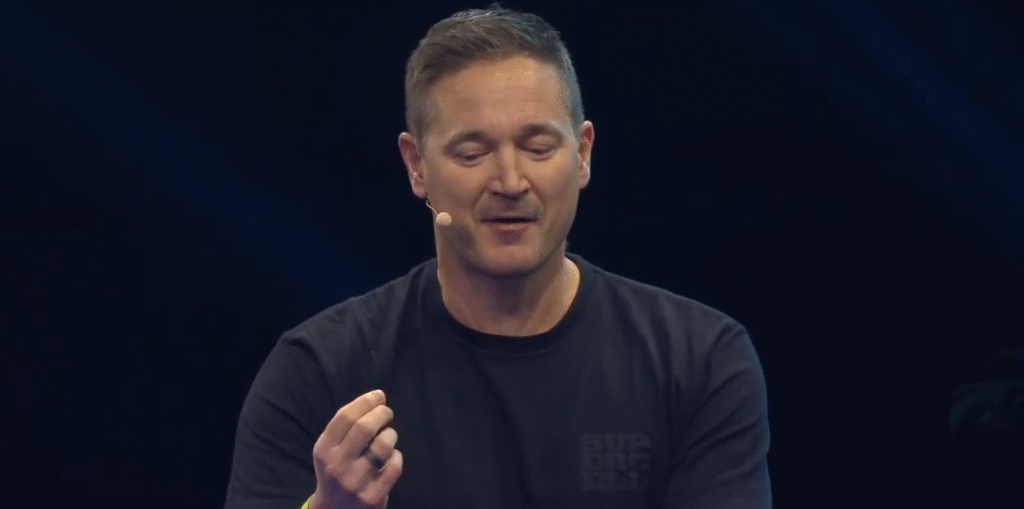Ilkka Paananen quietly built one of the most lucrative mobile gaming empires in the world by dominating headlines with consistency rather than controversy or charisma. His path as CEO and co-founder of Supercell has diverged significantly from Silicon Valley’s boisterous, venture-heavy narratives. Paananen has led a studio that regularly produces films with significant cultural and financial impact by promoting creativity over control.
When Chinese conglomerate Tencent paid $8.4 billion to acquire an 81.4% stake in Supercell back in 2016, it shocked the tech industry. In addition to redefining mobile gaming valuations, the figure immediately established Paananen as one of Europe’s most lucrative executives. His estimated net worth as of 2025 is $1.5 billion, although the precise amount is difficult to determine because of Finland’s comparatively low-key disclosure laws and his own modest public image.
Ilkka Paananen | Bio & Financial Snapshot
| Category | Details |
|---|---|
| Full Name | Ilkka Paananen |
| Year of Birth | 1978 |
| Nationality | Finnish |
| Education | Helsinki University of Technology |
| Occupation | CEO & Co-founder, Supercell |
| Net Worth (2025) | Estimated at $1.5 Billion |
| Annual Salary (2021) | Approximately $60.4 Million |
| Company Valuation | Supercell valued at $10.2 Billion (Tencent deal) |
| Notable Games | Clash of Clans, Clash Royale, Hay Day |
| Philanthropy | Co-founder, Me Foundation (funded with €200 million from Tencent deal) |
| Public Profile | Ilkka Paananen on X |
| Reference | WealthFuture UK – Ilkka Paananen |
Supercell’s development culture, which is based on autonomy, has enabled its teams to innovate quickly and on their own. It works incredibly well, much like planting a garden and letting each plant grow in its own way, with only the input of millions of players worldwide guiding it. Instead of centralizing decision-making, Paananen chose to empower small teams, and it has literally paid off.

Supercell’s revenue engine runs remarkably well through in-app purchases and sustained player retention. Over $10 billion in lifetime revenue has been made from games like Clash of Clans, greatly increasing both the company’s value and Paananen’s own financial profile. Supercell concentrates on creating games that players return to for years rather than just weeks, in a time when many game developers are chasing trends.
Additionally, philanthropy now plays a big role in his story. Paananen co-founded the Me Foundation, an initiative to address youth exclusion in Finland, shortly after the Tencent deal. It was one of the most generously funded social programs started by a tech entrepreneur in Europe, with €200 million to launch. This program is especially helpful in light of the growing disengagement of young people, particularly in countries that prioritize digital technology.
It’s interesting to note that Finland has developed into a sort of mobile game development center. From Clash Royale to Angry Birds, the nation’s output is noticeably out of proportion to its size. Systemic support, including generous R&D incentives, engineering-focused education, and a trial-and-error-friendly culture, is largely responsible for this success. Paananen has openly admitted that this ecosystem influenced Supercell’s ascent, frequently attributing success to his group and the Finnish model rather than his own brilliance.
In many respects, his leadership is a welcome diversion from the intense ego conflicts that frequently characterize tech success. Paananen chooses calmness and clarity over the erratic flair of executives like Elon Musk, who control the conversation. He communicates in a very straightforward manner, especially in his yearly open letters, which offer frank assessments of both successes and failures. He has gained the respect of both investors and developers as a result of his high degree of transparency.
Supercell’s growth hasn’t significantly slowed, despite the saturation of mobile gaming. Across its portfolio, the company reported its best-ever fiscal year in 2024, with over 300 million monthly active users. The studio has remained relevant in an industry that is known for destroying player interest by prioritizing quality over quantity and by not rushing releases.
In addition to his financial success, Paananen’s ability to redefine what leadership in gaming can entail is what makes him so intriguing. His story demonstrates that innovation, humility, and sustainability are not incompatible. He does not play every instrument, but he makes sure that each one plays in unison with the others, much like a conductor leads an orchestra.
